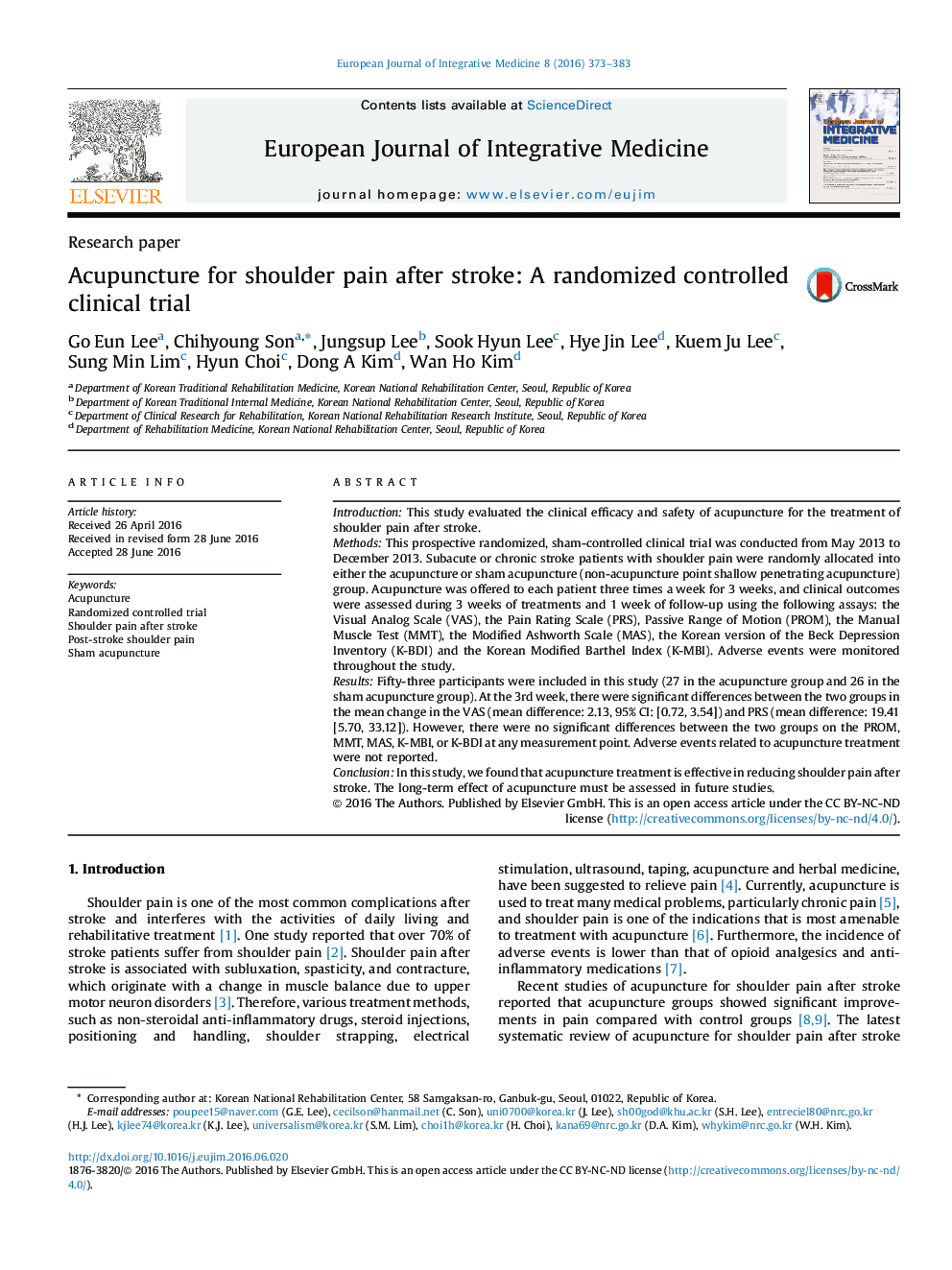| Article ID | Journal | Published Year | Pages | File Type |
|---|---|---|---|---|
| 5547353 | European Journal of Integrative Medicine | 2016 | 11 Pages |
IntroductionThis study evaluated the clinical efficacy and safety of acupuncture for the treatment of shoulder pain after stroke.MethodsThis prospective randomized, sham-controlled clinical trial was conducted from May 2013 to December 2013. Subacute or chronic stroke patients with shoulder pain were randomly allocated into either the acupuncture or sham acupuncture (non-acupuncture point shallow penetrating acupuncture) group. Acupuncture was offered to each patient three times a week for 3 weeks, and clinical outcomes were assessed during 3 weeks of treatments and 1 week of follow-up using the following assays: the Visual Analog Scale (VAS), the Pain Rating Scale (PRS), Passive Range of Motion (PROM), the Manual Muscle Test (MMT), the Modified Ashworth Scale (MAS), the Korean version of the Beck Depression Inventory (K-BDI) and the Korean Modified Barthel Index (K-MBI). Adverse events were monitored throughout the study.ResultsFifty-three participants were included in this study (27 in the acupuncture group and 26 in the sham acupuncture group). At the 3rd week, there were significant differences between the two groups in the mean change in the VAS (mean difference: 2.13, 95% CI: [0.72, 3.54]) and PRS (mean difference: 19.41 [5.70, 33.12]). However, there were no significant differences between the two groups on the PROM, MMT, MAS, K-MBI, or K-BDI at any measurement point. Adverse events related to acupuncture treatment were not reported.ConclusionIn this study, we found that acupuncture treatment is effective in reducing shoulder pain after stroke. The long-term effect of acupuncture must be assessed in future studies.
